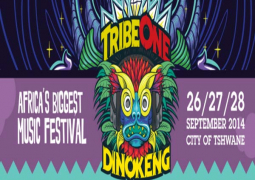
In
a country like ours that is just emerging from many years of despotism, we need
culture to generate national dialogue and consensus, says Hamat N.K Bah, the
minister of Tourism and Culture.
According
to him, through our shared heritage such as masquerades, languages and rituals,
we can always arrive at solutions to our political and social differences.
Through our shared cultural heritage, he added, we can build a united and
prosperous Gambia.
Minister
Bah made these remarks on Friday at the opening ceremony of the 3rdKankurang
Festival held in Janjanbureh, Central River Region.
The
event was organised by the local organising committee and supported by the
Youth Empowerment Project in collaboration with the National Center for Arts
and Culture and its partners.
The
objective of the festival is to enhance the development of Janjanbureh as a
tourism destination; promote youth employment in the areas of creative tourism,
while extending sustainable socio-economic and cultural benefits of tourism in
rural Gambia.
The
festival showcases various Gambian masquerades such as the Kankurang, Gesseh,
Fairy,Hunting, Kumpo, Ifangbondi, Zimba, and among other masquerades both in
the Gambia and Senegal.
About
the Kankurang Tradition
The
Kankurang tradition is a true and deeply moving expression of local culture in
Gambia and Senegal which ensures order, justice, and the collection of complex
know-how. On such occasion, young circumcised boys are to learn the rules of
behaviour for ordering their community, the secrets of plants and their
medicinal values, and hunting techniques. It is an empowerment of the young
people of Mandinka in order to enforce the rules set out by their society. It
is an expression of a common culture in order to live in peace with nature and
other humans.
Minister
Bah went on to add that the 3rd edition of the Janjanbureh Kankurang festival is
based on the significance of the Gambia’s cultural heritage for national
development as espoused in the National Development Plan (NDP) of the
Government of His Excellency President Adama Barrow.
Through
culture, he said, jobs can be created in the creative heritage industries such
as music, dance, community museums, tour guiding, film, and photography.
Therefore, he added, the youths can get jobs and secure livelihoods. “Tax
revenue from royalties of copyright of cultural products can help us generate
more monies for our treasury,” he said.
He
stated that this is why funding is needed to develop our heritage and creative
sector. “I have plans to develop a National Fund for Culture to help put more
funds on the table for the development of our heritage. Through that fund,
festivals like this one and similar activities will get funding,” he disclosed.
Tourism
and Culture Minister reiterated that heritage is major player in national
development that can give youth jobs, tax revenue and help build a booming
tourism culture. Therefore, he commended the work that the Kankurang Festival
Organising Committee is doing.
He
thanked the Youth Empowerment Programme for their support noting that their
role in heritage and creative sector is indeed much appreciated. “To the Board
and staff of the NCAC, we wish to extend thanks for the support they have given
towards the organisation of the festival. The Gambia Tourism Board and the
Gambia Tourism and Hospitality Institute have also offered much needed support,
which is highly noted and appreciated. The National Commission for UNESCO are
here and they have always supported the NCAC through the various interventions
such as the KankurangCenter in Janjanbureh,” he commended.
Hassoum Ceesay,
the director general of the National Center for Arts and Culture spoke on the
topic; significance of cultural heritage: masks and masquerades, saying in
traditional African societies, festivals serve to galvanize the community in a
celebration of life, as it helps the people know that they are alive and also
provide the opportunity to relieve the tensions and drudgery of everyday life.
Deputising
for the YEP project manager, Ngoneh Panneh, YEP’s Tourism and Creative Industry
adviser said the goal of the festival is to preserve culture and heritage. She
added that there is overwhelming need to recognise the vital role that cultural
and arts festivals plays in fulfilling our global need for increased
intercultural dialogue; our understanding of diversity and the promotion of
harmony.
According
to her, “our culture is our power and gift to the world and Janjanbureh is
enriched with phenomenal cultural heritage, history, undiluted nature and of
course beautiful people. These elements combined forms a strong basis, where
youth and women can be empowered, where a new tourism destination can be
developed, where sustainable employment can be generated, where cross sectoral
value addition can be promoted and supported-this is the dream YEP have for
Janjanbureh and its surrounding,” she stated.
Maimuna Sidibeh,
senior programme officer, National Commission for UNESCO, said that the
intangible cultural heritage also looks at traditions or living expressions
inherited from ancestors and passed on to our descendants in the form of; oral
traditions, performing arts, social practices, rituals, festive events,
knowledge and practices concerning nature and the universe or the knowledge and
skills to produce traditional crafts. In the face of growing globalisation,
intangible cultural heritage is vulnerable to the pressures of change.
Therefore,
she remarked, the understanding of intangible cultural heritage of different
communities is an important element of fostering intercultural dialogue and
encourages mutual respect for diversity among people and within communities.
Written by: Information Officer
MOTC




